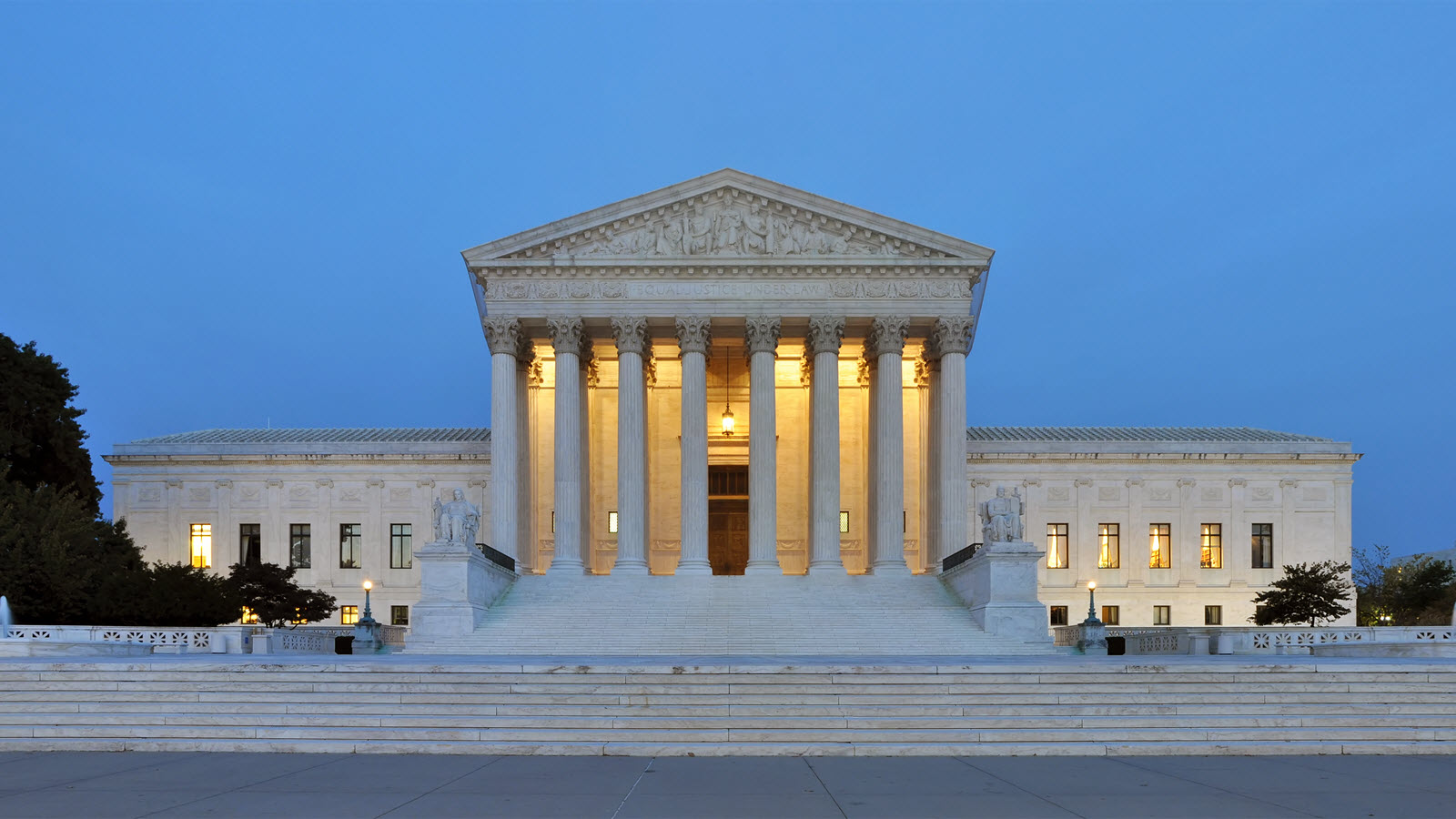Supreme Court To Weigh In on Section 230
Will hear appeals of decisions on terrorism-related social media content moderation

The smarter way to stay on top of the multichannel video marketplace. Sign up below.
You are now subscribed
Your newsletter sign-up was successful
The Supreme Court will hear two appeals of lower-court decisions involving the hot-button issue of online content moderation — in these cases specifically speech furthering terrorism — and the underlying Section 230 law that gives edge providers immunity from civil liability for their moderation of most third-party content posted on their sites.
Computer companies say it will be the first time the Supreme Court will weigh in on the now-controversial immunity under Section 230 of the Communications Decency Act, which both Democrats — including President Joe Biden — and Republicans have targeted for change or elimination.
In a list of orders of the court released Monday (October 3), the High Court agreed to hear appeals (known as “granting cert” in court lingo) of the Twitter v. Taamneh and Reynaldo v. Google decisions.
Also: FCC”s Carr Says It’s Time To Regulate Big Tech
Twitter, along with Google and Facebook, appealed a decision by the 9th U.S. Circuit Court of Appeals that combined the Taamneh and Gonzalez cases in a single decision. That ruling held that in Gonzalez the plaintiffs were barred by Section 230 immunity, but in the Twitter et al. case it held that, irrespective of Section 230, Twitter — as well as Google and Facebook — could be held liable for aiding and abetting terrorism because they “provided generic, widely available services to billions of users who allegedly included some supporters of ISIS,” as Twitter put it.
The Gonzalez case involved the posting of ISIS recruitment videos.
While the terrorism content is on the extreme end of the debate over content moderation, how the High Court decides the cases could have direct bearing on laws being considered or passed that limit how social media companies can manage content. Those measures are backed by Republicans who have argued that social media platforms censor conservative speech under the misapplied umbrella of weeding out hateful or dangerous speech.
“The cases challenge companies for allegedly not doing enough to address dangerous content on their sites at a time when several state legislatures are seeking to tie companies’ hands, arguing they are doing too much to remove content like disinformation or propaganda,” said the Computer & Communications Industry Association (whose members include Twitter, Google and Facebook).
Twitter had said the Supreme Court should leave the Gonzalez decision and its support for Section 230 immunity in place, since all parties in the Twitter case said that because the cases are similar, leaving that protection in place on the terrorism-related speech issue would resolve the Twitter et al. case (by signaling that they, too, had Section 230 immunity).
But the High Court has decided to hear both the Gonzalez and Taamneh decision appeals, so the issue is far from resolved.
“These cases underscore how important it is that digital services have the resources and the legal certainty to deal with dangerous content online," CCIA president Matt Schruers said. “Section 230 is critical to enabling the digital sector’s efforts to respond to extremist and violent rhetoric online, and these cases illustrate why it is essential that those efforts continue.”
In the wake of the Supreme Court's decision to hear the Gonzales and Taamneh cases, the communications attorneys at law firm Steptoe & Johnson say that a decision in favor of weakening Se. 230 could hurt more than internet giants.
"[A]lthough Section 230 is often viewed as protecting large Internet companies, it also protects smaller Internet platforms, such as blogs or the online comment sections of local newspapers. A court ruling limiting the protections of Section 230 could lead those platforms to shut down comments due to the expense and uncertainty of monitoring user submissions," they said in a blog post that chronicles the issue's peripatetic trip through the courts.
"Section 230 is a foundational and widely misunderstood law that protects human rights and free expression online," said Even Greer, director of Fight for the Future, which has fought to preserve Sec. 230. "At a time when civil rights and civil liberties are under unprecedented attack, weakening Section 230 would be catastrophic—disproportionately silencing and endangering marginalized communities including LGBTQ+ people, Black and brown folks, sex workers, journalists, and human rights activists around the world," she said. ■
The smarter way to stay on top of the multichannel video marketplace. Sign up below.
Contributing editor John Eggerton has been an editor and/or writer on media regulation, legislation and policy for over four decades, including covering the FCC, FTC, Congress, the major media trade associations, and the federal courts. In addition to Multichannel News and Broadcasting + Cable, his work has appeared in Radio World, TV Technology, TV Fax, This Week in Consumer Electronics, Variety and the Encyclopedia Britannica.

